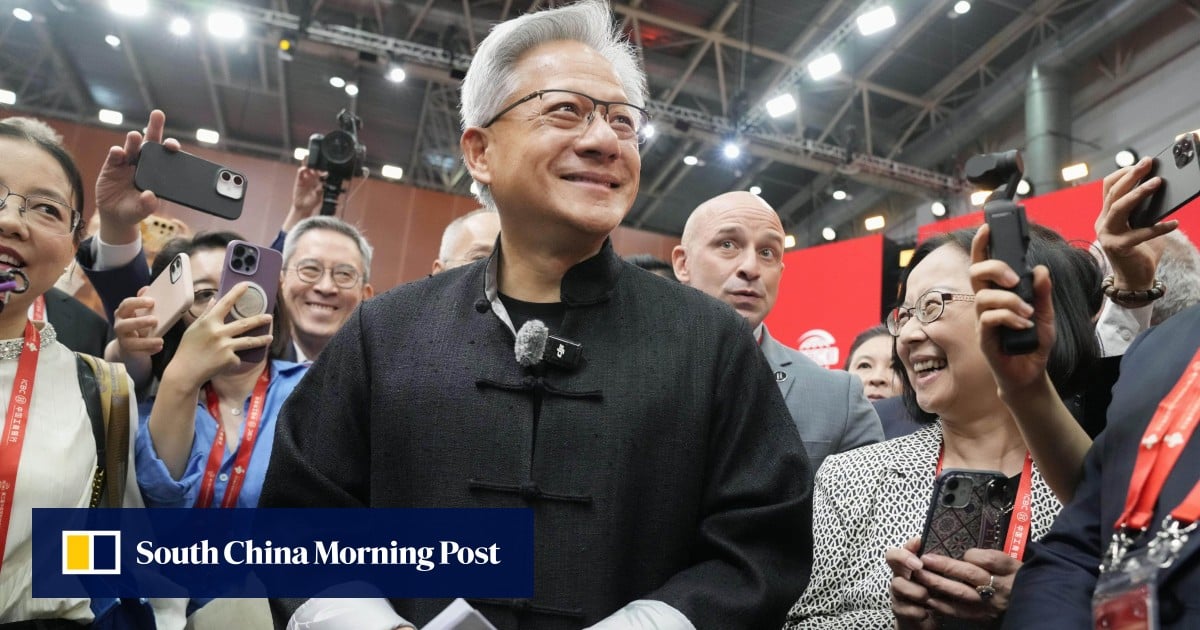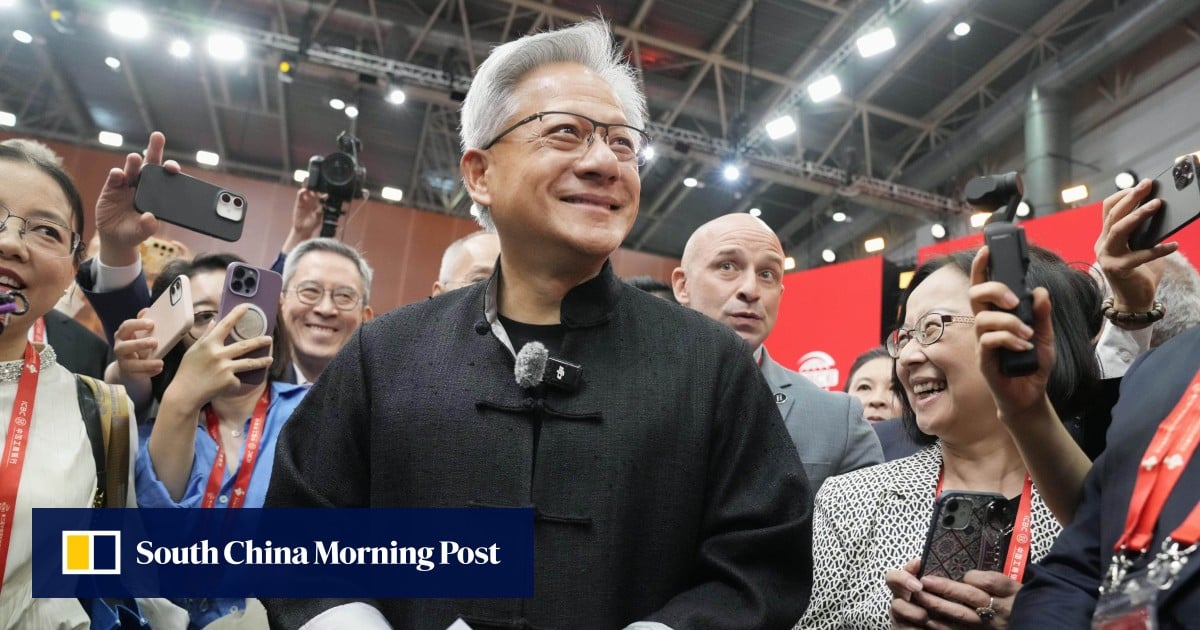Nvidia's CEO Jensen Huang has successfully navigated the intricate political landscape of U.S.-China relations, securing critical approval from the Trump administration to sell advanced H20 artificial
Did You Know
Your taste buds have a lifespan of about 10 to 14 days, after which they are replaced.
?
AD
intelligence chips to China. This strategic decision reverses earlier export bans and signals a thaw in U.S. tech policy during a time of increasing competition between the two nations. Huang’s diplomatic efforts underscore Nvidia's ambitions to cement its role in the rapidly expanding Chinese technology market, particularly in artificial intelligence, which has emerged as a crucial sector for innovation and economic growth.
In a move that aims to ease concerns surrounding the military applications of technology, Huang has publicly stated that the Chinese military is unlikely to use U.S. chips due to the associated risks, and he has emphasized that China does not need to rely on American tech stacks for its military ambitions. This assurance aims to quell fears while promoting collaboration in sectors where technological advancements can benefit both economies. The approval not only allows sales to resume but is expected to contribute an estimated $5.5 billion in revenue for Nvidia, enhancing its competitive edge in a landscape where AI capabilities are increasingly seen as foundational to national power.
Huang’s leadership extends beyond mere business transactions; he envisions a future where AI transforms work and life, creating new job opportunities even as it alters existing roles. His comments reflect a broader narrative in which innovation serves as a catalyst for progress, not just a disruptor. As Huang continues to engage with Chinese officials and push for Nvidia's interests, he positions the company as a vital player in both technological advancement and geopolitical diplomacy, exemplifying the delicate balance required in today’s interwoven world of business and international relations.
Q&A (Auto-generated by AI)
What is the H20 chip's significance?
The H20 chip is Nvidia's advanced AI processor designed for high-performance computing and machine learning applications. Its significance lies in its ability to process large datasets efficiently, making it crucial for industries like tech, automotive, and healthcare. The recent approval to resume sales of the H20 chip to China highlights its role in global AI development and the competitive landscape between US and Chinese tech firms. This chip's sales are pivotal for Nvidia's revenue and for addressing the growing demand for AI technologies in China.
How do US-China tech relations impact trade?
US-China tech relations significantly impact trade through policies like export controls and tariffs. Tensions have escalated over national security concerns, particularly regarding advanced technologies like semiconductors. The recent approval for Nvidia to sell its H20 chips to China reflects a potential thaw in relations, suggesting that the US may be willing to engage more with Chinese markets. However, ongoing rivalry and regulatory scrutiny continue to shape the landscape, affecting companies' strategies and market access.
What led to the recent approval for Nvidia?
The recent approval for Nvidia to resume sales of its H20 AI chips to China followed a series of meetings between Nvidia CEO Jensen Huang and US government officials, including President Donald Trump. This approval marks a shift in US policy, as the Trump administration previously imposed restrictions on advanced chip sales to China due to national security concerns. The decision reflects a balancing act between fostering economic ties with China and addressing security issues related to technology exports.
How does Nvidia's AI chip compare to competitors?
Nvidia's H20 AI chip is considered one of the leading processors in the market, particularly for AI and machine learning applications. Compared to competitors like AMD and Intel, the H20 offers superior performance in data processing and energy efficiency. Nvidia has established a strong position in the AI sector, driven by its innovative architecture and software ecosystem. While competitors are advancing their technologies, Nvidia's early investments in AI and deep learning give it a competitive edge in high-demand markets.
What are the implications of AI on jobs?
The implications of AI on jobs are complex and multifaceted. While AI technologies can enhance productivity and create new roles, there are concerns about job displacement as automation replaces certain tasks. Nvidia CEO Jensen Huang has suggested that AI will transform job functions rather than eliminate them entirely, emphasizing the need for workers to adapt. The ongoing debate centers on how industries can leverage AI to augment human capabilities while addressing potential workforce disruptions.














